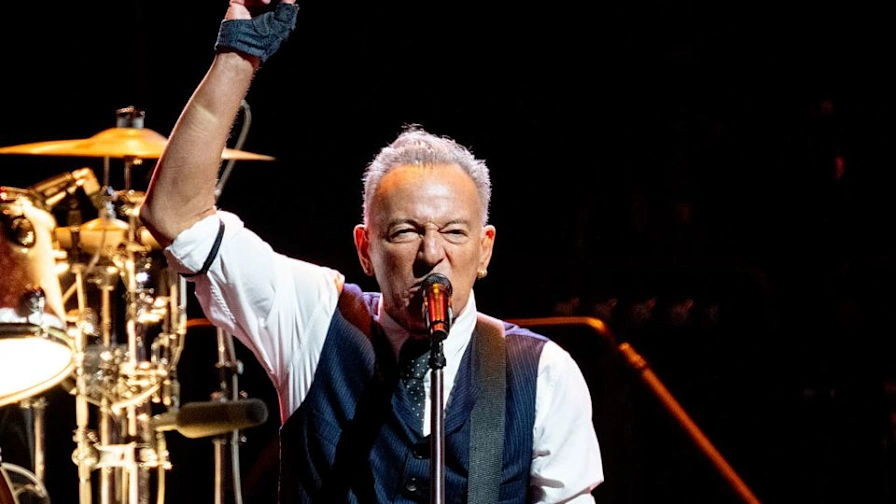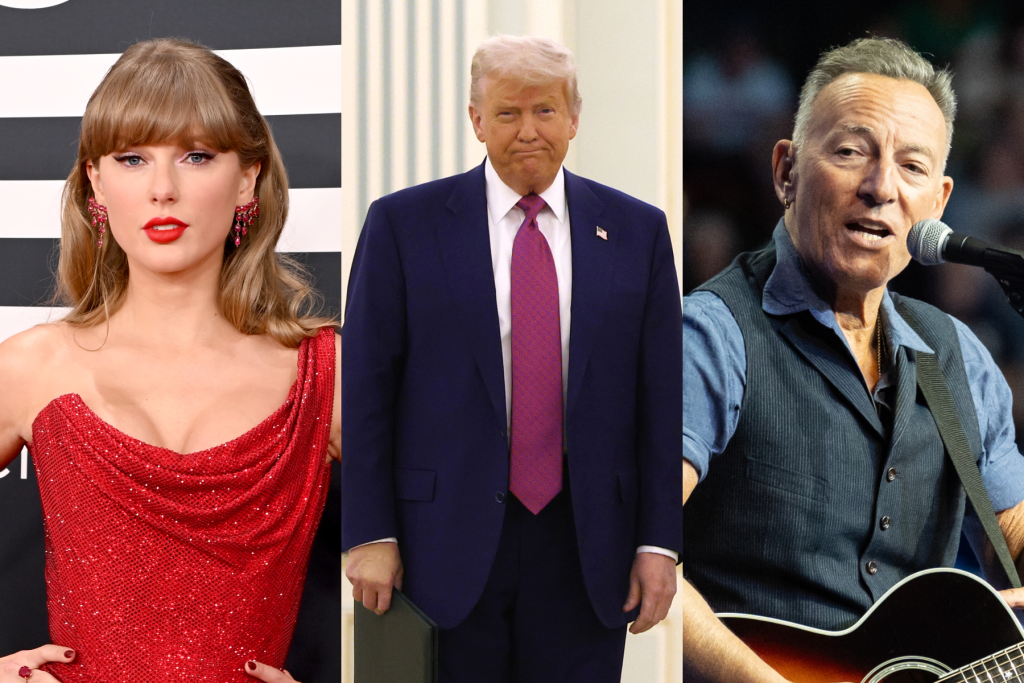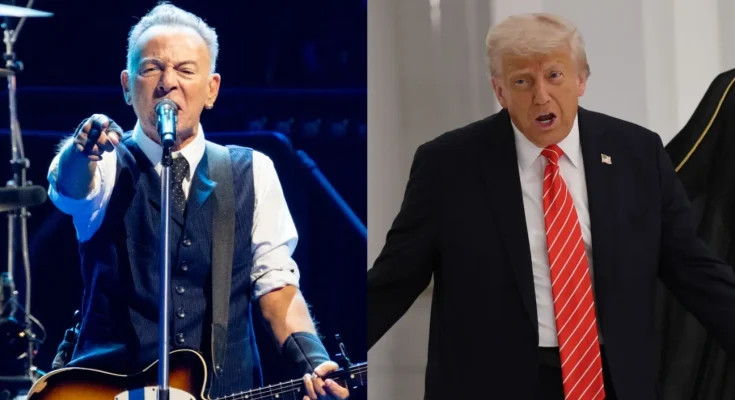At his recent sold-out performance in Philadelphia, legendary rock musician Bruce Springsteen took a bold political turn that left concertgoers buzzing and social media ablaze. Known for his working-class anthems and socially conscious lyrics, Springsteen used the moment between two of his most beloved songs to address what he called “the bruises left behind by a dark period in American democracy.”
In a candid, unscripted monologue, the 75-year-old singer-songwriter spoke critically of former President Donald Trump and the lingering effects of his administration. “We lived through a time when the truth didn’t matter,” Springsteen said, his voice firm but reflective. “When decency took a backseat to spectacle, and fear was sold as patriotism.”
The crowd, a mix of longtime fans and newer generations drawn to the mythos of “The Boss,” erupted in cheers and some audible gasps. Many applauded his remarks; others appeared surprised by the overt political message. But for Springsteen, this was nothing new. Throughout his decades-long career, he has never shied away from politics—often championing labor rights, civil rights, and American unity. This time, however, the tone was more direct and urgent.
A Legacy of Outspokenness
Springsteen’s comments didn’t come out of the blue. Since the 1980s, he has been seen as a voice for the voiceless—his songs frequently focusing on marginalized communities, disillusioned workers, and the heartaches of the American dream. His 2002 album The Rising, which dealt with the aftermath of 9/11, was lauded for its nuanced take on American resilience and tragedy.
In recent years, though, his voice has grown sharper, more critical. During Trump’s presidency, Springsteen expressed concern over what he viewed as a moral and institutional erosion in the U.S. In interviews and podcasts, he often referred to that period as “a test of America’s soul.” But this latest on-stage commentary marked a significant moment—blending his musical influence with unfiltered political expression.
“This Land Is Your Land” Gets New Life
Midway through the show, Springsteen launched into a rousing version of Woody Guthrie’s “This Land Is Your Land,” a protest anthem repurposed as a unifying call to action. Before the first verse, he told the crowd, “This song’s been sung for the people who’ve had the door shut in their face. Let’s open the door.”
The performance became one of the most talked-about segments of the night, as audience members waved flags, raised fists, and sang along with renewed meaning. It was clear that the crowd wasn’t just there for nostalgia—they were there for connection, solidarity, and in some cases, a call to action.
Reaction from Fans and Public Figures
The response was swift and polarizing. Within hours, clips of Springsteen’s comments went viral, trending across X (formerly Twitter), Instagram, and TikTok. Hashtags like #SpringsteenTruth and #TheBossSpeaks flooded timelines. Some hailed his speech as brave and necessary. Others, particularly conservatives, criticized him for “dividing fans” and “using the stage as a soapbox.”
Fox News ran a segment criticizing the singer for alienating his audience, while MSNBC featured a panel praising Springsteen’s “moral courage” in the face of what they described as “growing political apathy among entertainers.”
Even some politicians weighed in. Representative Alexandria Ocasio-Cortez tweeted, “When artists speak truth to power, they carry forward traditions older than this country. Thank you, Bruce.” Meanwhile, Senator J.D. Vance of Ohio posted, “Rock stars don’t speak for America—regular people do.”

The Broader Context: Art in a Political Age
Springsteen’s performance, while controversial to some, sits within a larger movement of artists reengaging with political discourse. In recent years, musicians from Taylor Swift to Childish Gambino have used their platforms to discuss voting rights, police brutality, and climate change. With a pivotal U.S. election on the horizon in 2026, many believe more artists will follow suit.
Dr. Carla Jimenez, a professor of music and politics at NYU, believes Springsteen’s comments signal a “critical shift.” “For decades, musicians were told to ‘just entertain’—but in this polarized era, silence can be seen as complicity. What Springsteen did was lean into his responsibility as a cultural figure with influence,” she said.
Fans Speak: Connection Over Controversy
At the show, fans had mixed but thoughtful reactions. Dave Phillips, a 62-year-old truck driver from Scranton, said, “I didn’t vote for Trump, but I’ve got friends who did. I don’t think Bruce was trying to insult anyone. He was just being honest. That’s why we love him.”
On the other hand, 28-year-old Natalie Wu, a first-time Springsteen attendee, said his words were inspiring. “It felt like more than a concert. It felt like a town hall with music,” she said. “I walked away feeling seen—and ready to vote.”
Springsteen Responds to the Buzz
In a brief statement issued through his publicist the next day, Springsteen stood by his remarks. “My music has always been about people—working people, struggling people, hopeful people. If we’re going to heal this country, we have to be honest about what hurt it. I said what I believe.”
He added that his tour would continue as planned and that fans should expect “more truth, more music, and more community.”
Final Thoughts
Bruce Springsteen’s concert in Philadelphia wasn’t just a musical event—it was a moment of reckoning. In an age when celebrity activism is both lauded and criticized, Springsteen reminded the world that for some artists, the personal is political. Whether praised or condemned, his voice continues to stir something deep in the American conscience.
And if this performance is any indication, The Boss isn’t done talking yet.



